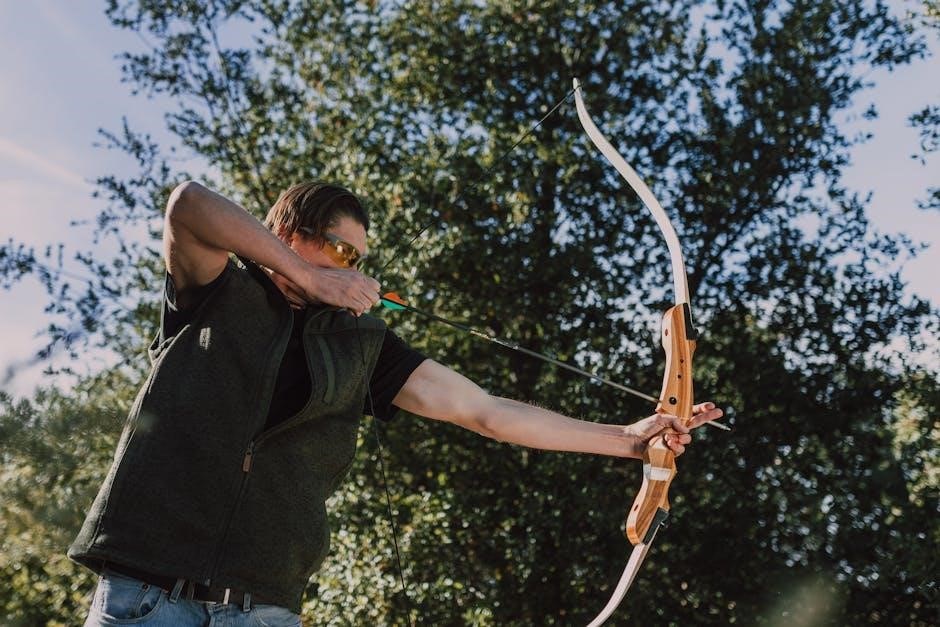Becoming a hunting guide offers a rewarding career for outdoor enthusiasts, combining passion for nature with expertise in wildlife and leadership, while promoting conservation efforts responsibly․
1․1 Overview of the Hunting Guide Profession
A hunting guide is a professional who leads hunters in pursuit of game, ensuring safe, ethical, and successful outings․ Guides operate in various terrains, from forests to tundras, and specialize in specific game species․ Their expertise includes tracking, navigation, and knowledge of wildlife behavior․ Guides also educate clients on local regulations, conservation practices, and outdoor skills․ The role combines physical endurance, leadership, and a deep connection with nature․ Hunting guides often work independently or for outfitters, catering to both novice and experienced hunters․ Their work bridges recreation and conservation, promoting sustainable hunting practices and fostering respect for wildlife and ecosystems․ This profession demands a unique blend of skills, passion, and dedication․
1․2 Importance of Hunting Guides in Wildlife Conservation
Hunting guides play a vital role in wildlife conservation by promoting sustainable hunting practices and managing wildlife populations․ They ensure ethical hunting, preventing overhunting and protecting endangered species․ Guides also educate clients about conservation, fostering a deeper appreciation for nature․ Their expertise helps maintain healthy ecosystems, balancing human and wildlife needs․ By supporting conservation efforts, guides contribute to habitat preservation and biodiversity․ Their work aligns with environmental goals, making them key players in preserving wildlife for future generations․ Through responsible practices, guides help sustain wildlife populations and ecosystems, ensuring a harmonious relationship between hunting and conservation․
1․3 Personal and Professional Benefits of Being a Hunting Guide
Becoming a hunting guide offers numerous personal and professional rewards․ It allows individuals to connect with nature, share their passion for the outdoors, and develop a deep understanding of wildlife․ Professionally, it provides opportunities to build a reputation, network with like-minded individuals, and potentially grow a successful business․ The role also fosters leadership skills, as guides often lead and mentor clients․ Additionally, the sense of fulfillment from contributing to conservation efforts and ensuring sustainable hunting practices can be deeply rewarding․ Overall, it’s a career path that combines personal passion with professional growth, offering a unique lifestyle that aligns with a love for the wilderness and its preservation․

Understanding the Role of a Hunting Guide
A hunting guide leads hunters safely, shares expertise, and ensures memorable experiences, balancing education and adventure in the wilderness with passion and dedication․
2․1 Key Responsibilities of a Hunting Guide
A hunting guide’s primary role is to ensure a safe and successful hunting experience for clients․ This includes planning and leading excursions, scouting locations, and managing logistics․ Guides must communicate effectively with clients to understand their goals and skill levels, providing guidance on techniques and ethics․ They are responsible for ensuring compliance with hunting laws and regulations․ Additionally, guides must be prepared to handle emergencies, such as injuries or weather-related issues․ They also manage equipment, track game, and assist with harvesting and field dressing animals․ Building trust and rapport with clients is essential, as is promoting sustainable and ethical hunting practices to conserve wildlife and habitats․
2․2 Skills and Qualities Required for Success
To excel as a hunting guide, one must possess a combination of skills and qualities․ Strong outdoor navigation and tracking abilities are essential, along with marksmanship and firearms safety knowledge․ Physical stamina and endurance are critical for handling demanding terrain and long hours․ Effective communication and leadership skills are necessary to guide clients and ensure safety․ Problem-solving and adaptability are vital for unpredictable field conditions․ A deep understanding of wildlife behavior, habitat, and conservation principles is also crucial․ Additionally, patience, empathy, and the ability to teach are key for working with clients of varying skill levels․ These qualities ensure a safe, successful, and enjoyable experience for all parties involved․
2․3 Physical and Mental Demands of the Job
The role of a hunting guide requires significant physical stamina, as it involves long hours of hiking, carrying gear, and navigating challenging terrain in various weather conditions․ Mental endurance is equally crucial, as guides must remain focused and composed under pressure, ensuring client safety and success․ The job demands adaptability, resilience, and the ability to make quick decisions in unpredictable environments․ Additionally, guides must manage the emotional and physical needs of clients, which can be mentally taxing․ Despite the challenges, the rewards of connecting people with nature and fostering memorable experiences make the demands worthwhile for passionate outdoor enthusiasts․
Educational and Training Requirements
Pursuing formal education in wildlife management or outdoor recreation provides a foundation․ Specialized training programs teach guiding principles, outdoor skills, and first aid․ Certifications ensure compliance with regulations․
3․1 Necessary Certifications and Licenses
To become a hunting guide, obtaining the proper certifications and licenses is essential․ Most states require a hunting guide certification, which involves completing a training program and passing an exam․ Additionally, first aid and CPR certifications are often mandatory to ensure client safety․ A valid hunting license for the state where you plan to operate is also necessary․ Some regions may require special permits for guiding specific game species or in protected areas․ Liability insurance is another critical requirement to protect yourself and clients in case of accidents․ Requirements vary by jurisdiction, so researching and complying with local regulations is crucial for legal operation․
- Hunting guide certification
- First aid and CPR certification
- State hunting license
- Special permits for specific game or regions
- Liability insurance
Ensure all documentation is up to date and compliant with local laws to operate legally and professionally․
3․2 Relevant Courses and Workshops
Enrolling in specialized courses and workshops is crucial for aspiring hunting guides․ These programs often cover wildlife ecology, outdoor survival, and firearms safety․ Many offer hands-on training in tracking, navigation, and game management․ Workshops may focus on specific skills like bowhunting, bird hunting, or big game guiding․ Additionally, courses in business management and marketing can help guides build a successful client base․ Some programs are offered by outdoor organizations or vocational schools, providing structured learning environments․ These educational opportunities not only enhance technical skills but also foster a deeper understanding of ethical hunting practices and conservation; They are essential for gaining the knowledge and confidence needed to excel in the field․
3․3 Importance of First Aid and Safety Training
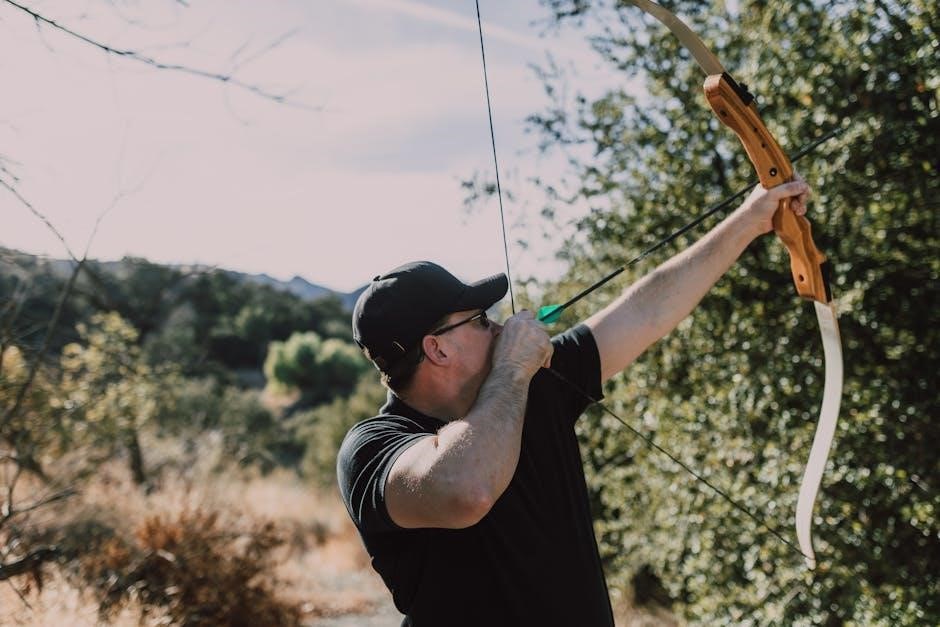
First aid and safety training are critical for hunting guides to ensure client and personal safety in remote, high-risk environments․ Accidents, injuries, or sudden illnesses can occur, and immediate, effective response is essential․ Guides must master basic life-saving techniques, such as wound management, CPR, and splinting, to stabilize situations until professional help arrives․ Safety training also covers hazard identification, emergency preparedness, and crisis management․ These skills not only protect clients but also enhance a guide’s professionalism and reliability․ Regular updates to certifications ensure guides stay informed about best practices, making them indispensable in safeguarding hunting expeditions and fostering trust with clients․
Gaining Practical Experience
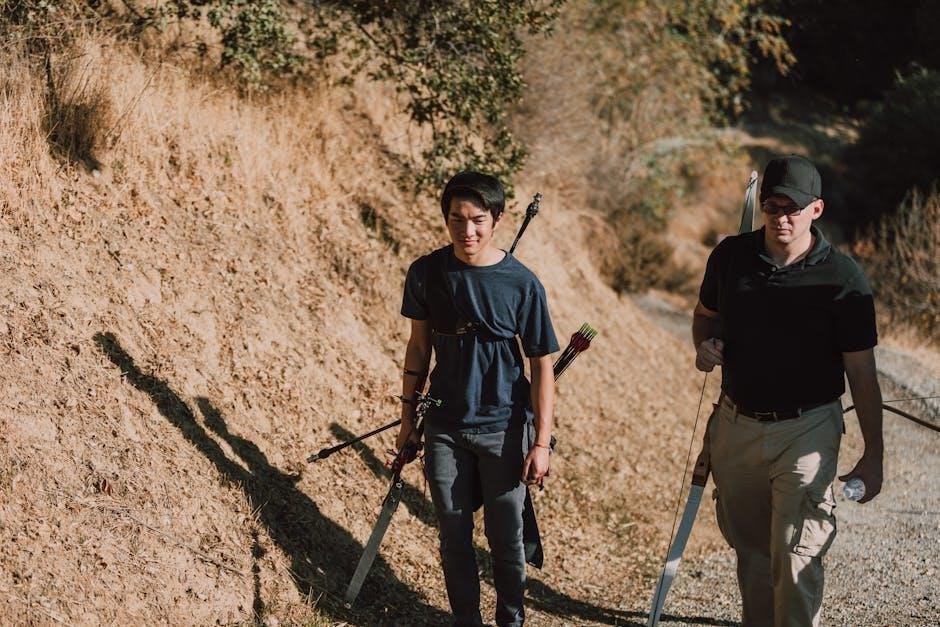
Gaining practical experience is crucial, involving hands-on learning, real-world application of skills, and developing instincts through time spent in diverse hunting environments and conditions․
4․1 Starting as an Apprentice or Assistant Guide
Beginning as an apprentice or assistant guide provides invaluable hands-on experience, allowing you to learn from seasoned professionals․ This role involves shadowing experienced guides, assisting with logistics, and observing client interactions․ It’s an opportunity to develop practical skills, such as tracking, navigation, and wildlife behavior, while gaining insight into the operational aspects of guiding․ Apprenticeships also help build confidence and familiarity with the demands of the job․ By starting at this level, you can refine your abilities, understand client needs, and gradually take on more responsibilities, laying a strong foundation for your future as a hunting guide․
4․2 Building a Network of Mentors and Peers
Building a strong network of mentors and peers is crucial for aspiring hunting guides․ Experienced mentors provide valuable insights, share techniques, and offer guidance tailored to real-world scenarios․ Connecting with peers fosters camaraderie, shared knowledge, and mutual support․ Attend workshops, join hunting organizations, and engage in online forums to expand your network․ These relationships can lead to apprenticeship opportunities, client referrals, and access to exclusive resources․ A robust network not only enhances your skills but also keeps you informed about industry trends and best practices․ Cultivating these connections is essential for long-term success and continuous learning in the field․
4․3 Logging Hours in the Field
Logging hours in the field is essential for gaining practical experience as a hunting guide․ Time spent in various environments hones skills like tracking, navigation, and understanding animal behavior․ Consistently exposure to different conditions builds instincts and decision-making abilities․ Guides learn to adapt to unpredictable weather, terrain, and wildlife reactions․ Each outing provides opportunities to refine techniques and gain confidence․ Experience also teaches how to handle unexpected challenges, ensuring safety and success for future clients․ The more time spent in the field, the more prepared and knowledgeable a guide becomes, making hands-on experience indispensable for building a strong foundation in the profession․

Obtaining Licenses and Permits
Acquiring the necessary licenses and permits is crucial for legally operating as a hunting guide, ensuring compliance with state and federal regulations to practice professionally and ethically․
5․1 State and Federal Licensing Requirements
Obtaining the proper licenses is a critical step to becoming a hunting guide․ Most states require guides to hold a specific outfitter or guide license, which often involves passing a written exam, background check, and paying associated fees․ Federal licenses may also be necessary, particularly for guiding on federal lands or for certain game species․ Requirements vary by state, so researching local regulations is essential․ Additionally, some states require guides to complete a mentorship program or log a certain number of hours in the field․ Ensuring compliance with all licensing requirements is vital to operate legally and maintain professional credibility;
5;2 Special Permits for Specific Game or Regions
Obtaining special permits is crucial for hunting guides targeting specific game or operating in protected regions․ These permits ensure compliance with local regulations and conservation efforts․ Guides must research and secure permits for endangered species or unique hunting areas, often requiring additional documentation and fees․ Regional permits may involve limited quotas or seasonal restrictions, necessitating careful planning․ Guides should stay informed about permit requirements, as they can vary significantly by location and game type․ Proper permitting not only avoids legal issues but also supports sustainable hunting practices and maintains ecological balance․ Understanding and adhering to these regulations is essential for ethical and responsible guiding․
5․3 Renewal and Maintenance of Licenses
Renewing and maintaining hunting guide licenses is crucial for continued operation․ Most states require periodic renewal, often annually or biennially, with updated fees and documentation․ Guides must stay compliant with evolving regulations, which may include continuing education or recertification in specific skills like first aid or wildlife management․ Failing to renew licenses can result in legal penalties or loss of guiding privileges; Additionally, maintaining a clean record, adhering to ethical practices, and staying informed about regulatory changes are essential for long-term success in the profession․ Regular license maintenance ensures guides remain qualified and trustworthy, upholding industry standards and conservation efforts․

Developing Essential Skills
Mastering outdoor navigation, tracking, and marksmanship is vital․ Enhance communication and leadership abilities to effectively guide and ensure client safety while fostering a positive hunting experience․
6․1 Mastering Outdoor Navigation and Tracking
Mastering outdoor navigation and tracking is crucial for hunting guides to ensure safety and success․ Start by learning to use maps, compasses, and GPS devices effectively․ Understand natural navigation techniques, such as reading the sun, stars, and landmarks․ Tracking involves identifying animal signs, like footprints, scat, and bedding areas, to locate game․ Practice observing behavior patterns and habitat preferences․ Develop patience and keen observational skills to follow trails accurately․ These abilities not only enhance hunting success but also build client trust․ Continuous practice in diverse terrains and conditions is essential to refine these skills, ensuring reliability in the field․
6․2 Improving Marksmanship and Firearms Safety
Mastering marksmanship and firearms safety is crucial for hunting guides, as it ensures both client safety and ethical hunting practices․ Regular practice at shooting ranges helps build accuracy and consistency․ Understanding ballistics, firearm maintenance, and proper handling techniques is essential․ Guides must also stay updated on safety protocols to prevent accidents․ Additionally, familiarizing oneself with various firearms and equipment ensures versatility in different hunting scenarios․ Ethical considerations, such as clean and humane kills, are emphasized through precise shooting․ Continuous improvement in these areas not only enhances a guide’s reputation but also contributes to responsible and sustainable hunting practices․
6․3 Enhancing Communication and Leadership Abilities
Effective communication and strong leadership are critical for a hunting guide to ensure client safety, satisfaction, and successful outings․ Developing these skills involves practicing clear, concise dialogue and active listening to understand client needs and concerns․ Leadership abilities can be honed through experience, where guides must make decisive decisions, manage group dynamics, and inspire confidence․ Additionally, learning conflict resolution and remaining approachable fosters trust and cooperation․ Continuous improvement through workshops, mentorship, and self-reflection can further refine these skills, enabling guides to lead with authority and empathy, creating memorable and safe hunting experiences․

Building a Reputation and Client Base
Establishing trust and reliability is crucial․ Deliver exceptional experiences, communicate effectively, and prioritize client satisfaction to build lasting relationships and attract repeat business through positive referrals․
7․1 Creating a Professional Online Presence
Establishing a professional online presence is crucial for attracting clients and showcasing your expertise․ Start by creating a website detailing your services, experience, and contact information․ Use high-quality images and testimonials from past clients to build credibility․ Leverage social media platforms like Instagram and Facebook to share hunting tips, success stories, and updates from the field․ Optimize your content with relevant keywords to improve search engine visibility․ Consider creating a blog to discuss hunting strategies, gear recommendations, and conservation efforts․ Engage with online communities and forums to network with potential clients and peers; A strong online presence not only markets your services but also demonstrates your commitment to professionalism and client satisfaction․
7․2 Marketing Strategies for Attracting Clients
Effective marketing is crucial for attracting clients as a hunting guide․ Develop a strong online presence through a professional website and social media platforms to showcase your expertise and services․ Utilize targeted advertising to reach potential clients, such as hunters and outdoor enthusiasts․ Leverage testimonials and reviews from satisfied clients to build credibility․ Offer promotional packages or discounts to first-time customers to encourage bookings․ Network with local outfitters, lodges, and sporting goods stores to expand your reach․ Create engaging content like blogs, videos, or podcasts to share hunting tips and stories, positioning yourself as a knowledgeable guide․ Consistent branding and personalized communication will help establish trust and attract loyal clients․
7․3 Delivering Exceptional Customer Service
Delivering exceptional customer service is crucial for building a loyal client base and a strong reputation as a hunting guide․ This involves clear communication, attentiveness to clients’ needs, and ensuring a safe, enjoyable experience․ Guides should be knowledgeable, patient, and adaptable, catering to varying skill levels and preferences․ Providing personalized attention, such as tailored hunting strategies and sharing insights about wildlife, enhances client satisfaction․ Positive interactions, professionalism, and a genuine passion for the outdoors foster trust and memorable experiences․ By exceeding expectations, guides create long-term relationships and encourage referrals, which are vital for sustaining a successful career in this competitive field․
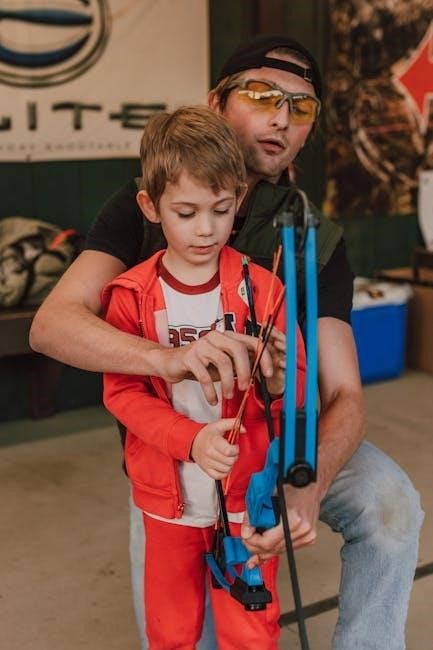
Understanding Legal and Ethical Considerations
Understanding legal and ethical considerations is crucial for hunting guides to ensure compliance with regulations, promote sustainable practices, and maintain trust with clients and the environment․
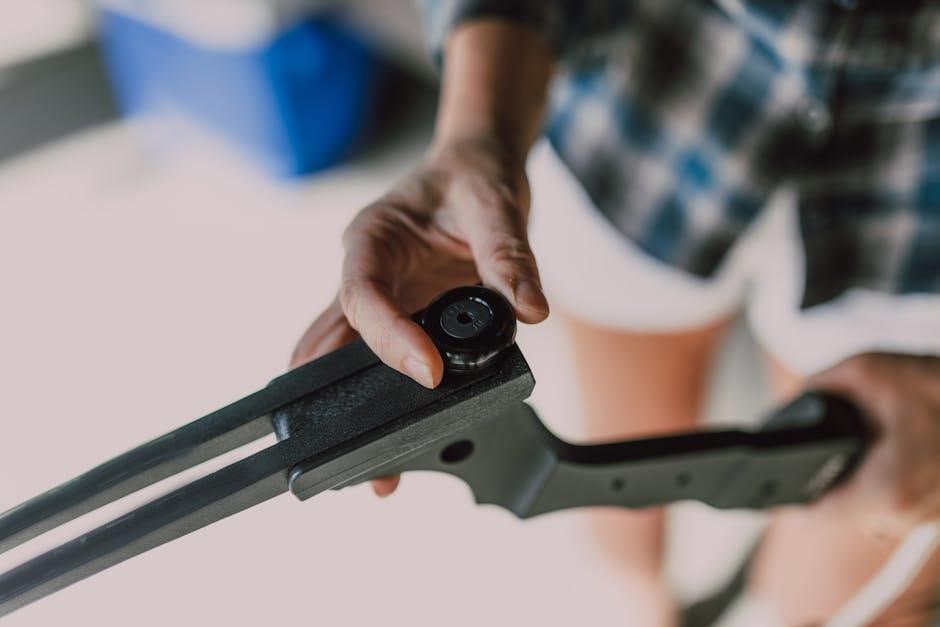
8․1 Compliance with Hunting Laws and Regulations
Compliance with hunting laws and regulations is critical for ethical and legal guiding practices․ Guides must understand and adhere to state and federal regulations, including permits, seasons, and bag limits․ Failure to comply can result in legal penalties, loss of licenses, and damage to professional reputation․ Staying informed about updates to laws ensures guides operate within legal boundaries․ Many states require completion of a hunter education course to reinforce knowledge of safety and legal standards․ By upholding these regulations, guides contribute to wildlife conservation and maintain public trust in the profession․ Always verify information through official wildlife agency sources to ensure accuracy and avoid violations․
8․2 Ethical Hunting Practices and Conservation
Ethical hunting practices are cornerstone to responsible guiding, ensuring sustainable wildlife management and respect for nature․ Guides must adhere to fair chase principles, minimizing environmental impact and avoiding wasteful harvesting․ Conservation efforts are integral, as guides play a key role in educating clients about habitat preservation and species protection․ By promoting selective harvesting and respecting seasonal regulations, guides help maintain healthy wildlife populations․ Ethical practices also involve humane treatment of animals and leaving a minimal footprint in the wilderness․ These standards not only preserve ecosystems but also foster a positive public perception of hunting, aligning it with broader conservation goals for future generations․
8․3 Liability Insurance and Risk Management
Liability insurance is crucial for hunting guides to protect against legal and financial risks arising from accidents or injuries to clients․ Guides must ensure adequate coverage to address potential claims․ Risk management involves assessing hazards, implementing safety protocols, and maintaining emergency response plans․ Guides should also document client waivers, health disclosures, and safety briefings․ Regular equipment checks and adherence to best practices minimize risks․ Understanding local laws and regulations further mitigates liability․ Investing in insurance and proactive risk management safeguards both the guide’s business and clients’ well-being, ensuring a safe and professional hunting experience․
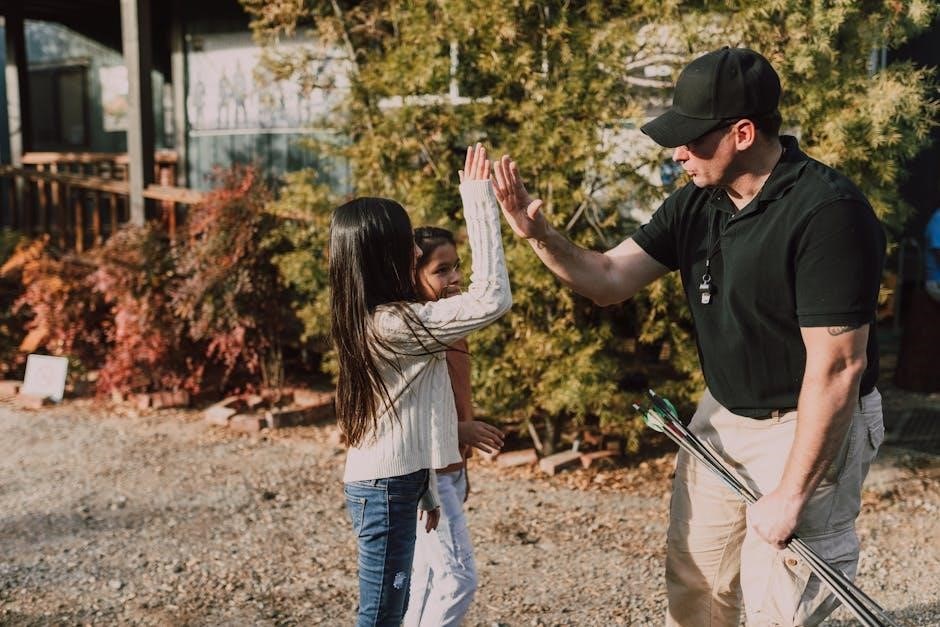
Staying Updated on Industry Trends
Staying informed about industry trends ensures guides remain competitive and knowledgeable, attending workshops, subscribing to publications, and engaging in online forums to stay current and adaptable․
9․1 Attending Workshops and Conferences
Attending workshops and conferences is crucial for professional growth as a hunting guide․ These events provide opportunities to network with experienced guides, biologists, and outdoor experts․ You’ll gain insights into the latest techniques, gear, and conservation practices․ Workshops often cover topics like wildlife behavior, habitat management, and safety protocols․ Conferences may include seminars on business management, marketing, and legal requirements․ These gatherings also offer hands-on training, such as field demonstrations and interactive sessions․ By participating, you’ll stay updated on industry trends and enhance your skills, making you a more knowledgeable and effective guide․ Continuous learning is key to a successful and reputable career in this field․
9․2 Subscribing to Industry Publications
Subscribing to industry publications is crucial for staying informed about the latest trends, regulations, and best practices in hunting and wildlife management․ These publications often feature articles on new gear, hunting techniques, and conservation efforts․ By reading industry magazines, blogs, and newsletters, aspiring guides can gain insights into the profession and stay updated on changes in laws and environmental policies․ Additionally, these resources frequently include tips from experienced guides, helping newcomers refine their skills and knowledge․ Subscribing to reputable sources ensures access to credible information, enhancing both professionalism and effectiveness in the field․ This habit fosters continuous learning and adaptability, essential for long-term success as a hunting guide․
9․3 Engaging with Online Communities and Forums
Engaging with online communities and forums is a valuable way to connect with fellow guides, hunters, and outdoor enthusiasts․ These platforms offer insights into industry trends, best practices, and regional-specific knowledge․ By participating in discussions, you can share experiences, learn from others, and gain tips on improving your guiding skills․ Many forums also provide updates on new gear, regulations, and conservation efforts․ Building relationships in these communities can lead to mentorship opportunities, collaborations, and even client referrals․ Staying active in these spaces helps you stay informed and connected, ensuring you remain competitive and up-to-date in the ever-evolving field of hunting guiding․
Becoming a hunting guide is a fulfilling journey that combines passion for the outdoors with dedication to conservation and leadership, offering a unique and rewarding career path․
10․1 Summary of Key Steps to Become a Hunting Guide
Becoming a hunting guide requires a blend of education, hands-on experience, and adherence to legal standards․ Start by obtaining necessary certifications and licenses, ensuring compliance with state and federal regulations․ Engage in workshops and courses to enhance outdoor skills, such as navigation and wildlife tracking․ Gain practical experience by apprenticing with seasoned guides or volunteering on hunting trips․ Develop essential qualities like physical stamina, patience, and strong communication abilities․ Build a network of mentors and peers to learn from their expertise and gain insights․ Stay updated on industry trends and best practices through continuous learning and community engagement․ Finally, cultivate a reputation for reliability and professionalism to attract and retain clients․
10․2 Final Thoughts on the Rewards of the Profession
Becoming a hunting guide is a deeply rewarding profession that combines a passion for the outdoors with the opportunity to share knowledge and experiences with others․ It offers a unique chance to connect with nature, foster conservation efforts, and build meaningful relationships with clients․ The profession provides both personal and professional growth, allowing individuals to make a living doing what they love․ For those who are passionate about wildlife, leadership, and the great outdoors, being a hunting guide can be a fulfilling and purposeful career that leaves a lasting impact on both people and the environment․
10․3 Encouragement to Pursue the Career Path
Pursuing a career as a hunting guide is a fulfilling path for those passionate about the outdoors, wildlife, and sharing knowledge․ It offers a unique opportunity to connect with nature, inspire others, and contribute to conservation efforts․ While the journey requires dedication and hard work, the rewards are immense․ Building relationships, experiencing the thrill of the hunt, and making a positive impact on wildlife management are just a few of the many benefits․ For those willing to put in the effort, this profession promises a lifetime of adventure, personal growth, and the satisfaction of preserving the natural world for future generations․
